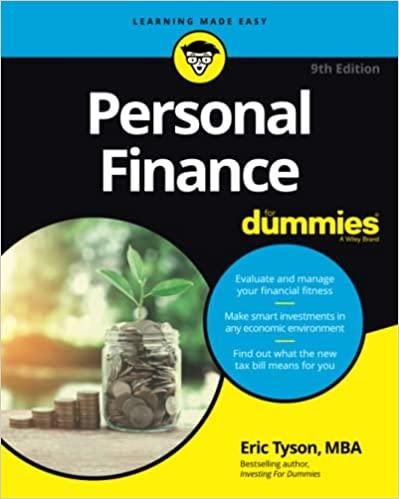Question
The IRS had established a value on her fathers stock of $100 a share, and since he owned 100,000 shares, the value of the company
The IRS had established a value on her fathers stock of $100 a share, and since he owned 100,000 shares, the value of the company for estate tax purposes was $10,000,000. to aid the valuation process Ryer assembled the following information. The firm earned $8.50 a share and distributed 60 percent in cash dividends during its last fiscal year. This payout ratio had been maintained for several years, with 40 percent of the earnings being retained to finance future growth.The per-share earnings for the past five years were as follows:
Year
20X1 20X2 20X3 20X4 20X5
Earnings per share
$6.70 7.40 7.85 8.20 8.50
Publicly held firms in the industry have an average P/E ratio of 12, with the highest being 17 and the lowest 9. The betas of these firms tend to be less than 1.0, with 0.85 being typical. While the firm is not publicly held, it is similar in structure to other firms in the industry. It is, however, per ceptibly smaller than the publicly held firms. The Treasury bill rate is currently 5.2 percent, and most financial analysts anticipate that the market as a whole will average a return of 6 to 6.5 percent greater than the Treasury bill rate.
If the estate tax rate is 35 percent, what is the implication of a valuation if less than $100 per share?
Step by Step Solution
There are 3 Steps involved in it
Step: 1

Get Instant Access to Expert-Tailored Solutions
See step-by-step solutions with expert insights and AI powered tools for academic success
Step: 2

Step: 3

Ace Your Homework with AI
Get the answers you need in no time with our AI-driven, step-by-step assistance
Get Started


